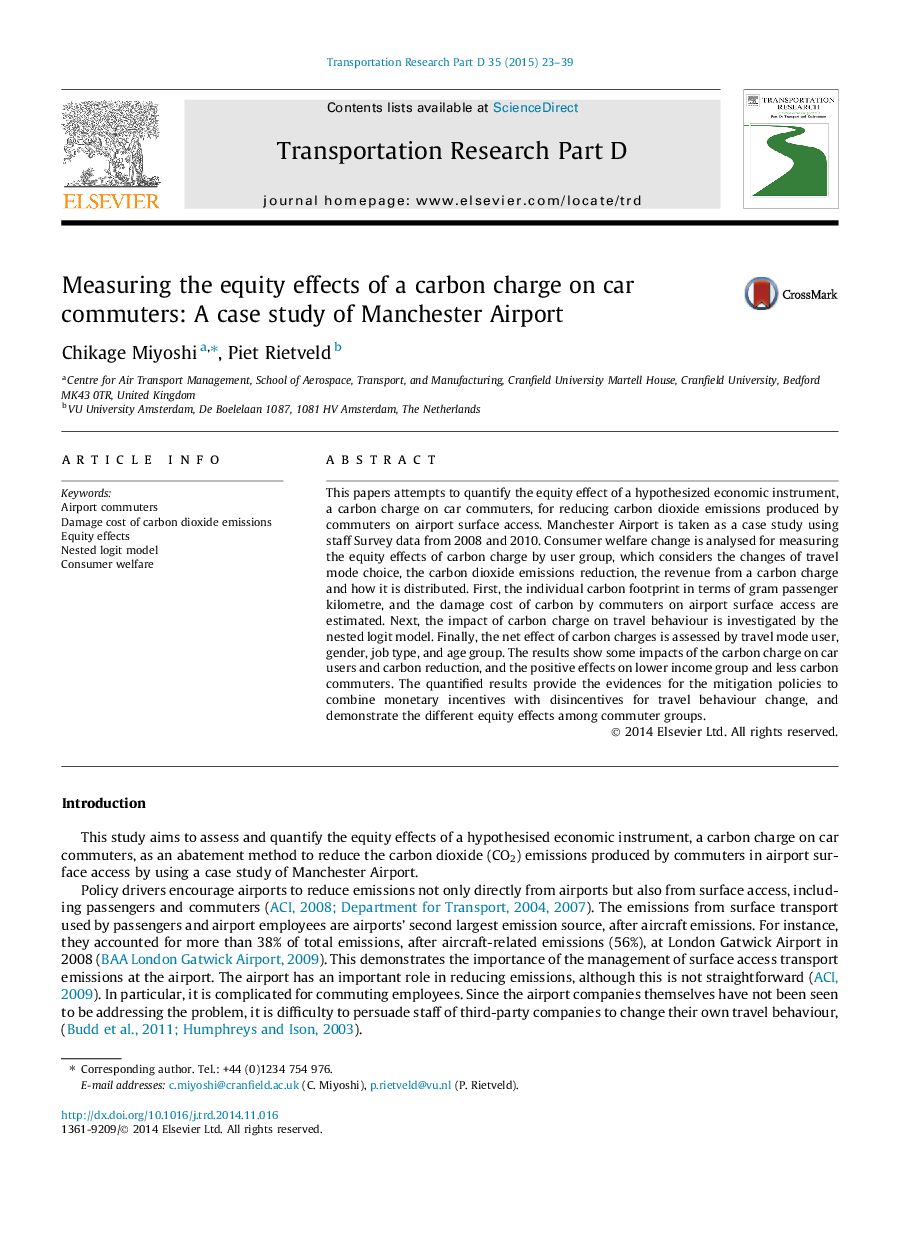| Article ID | Journal | Published Year | Pages | File Type |
|---|---|---|---|---|
| 7500564 | Transportation Research Part D: Transport and Environment | 2015 | 17 Pages |
Abstract
This papers attempts to quantify the equity effect of a hypothesized economic instrument, a carbon charge on car commuters, for reducing carbon dioxide emissions produced by commuters on airport surface access. Manchester Airport is taken as a case study using staff Survey data from 2008 and 2010. Consumer welfare change is analysed for measuring the equity effects of carbon charge by user group, which considers the changes of travel mode choice, the carbon dioxide emissions reduction, the revenue from a carbon charge and how it is distributed. First, the individual carbon footprint in terms of gram passenger kilometre, and the damage cost of carbon by commuters on airport surface access are estimated. Next, the impact of carbon charge on travel behaviour is investigated by the nested logit model. Finally, the net effect of carbon charges is assessed by travel mode user, gender, job type, and age group. The results show some impacts of the carbon charge on car users and carbon reduction, and the positive effects on lower income group and less carbon commuters. The quantified results provide the evidences for the mitigation policies to combine monetary incentives with disincentives for travel behaviour change, and demonstrate the different equity effects among commuter groups.
Related Topics
Life Sciences
Environmental Science
Environmental Science (General)
Authors
Chikage Miyoshi, Piet Rietveld,
